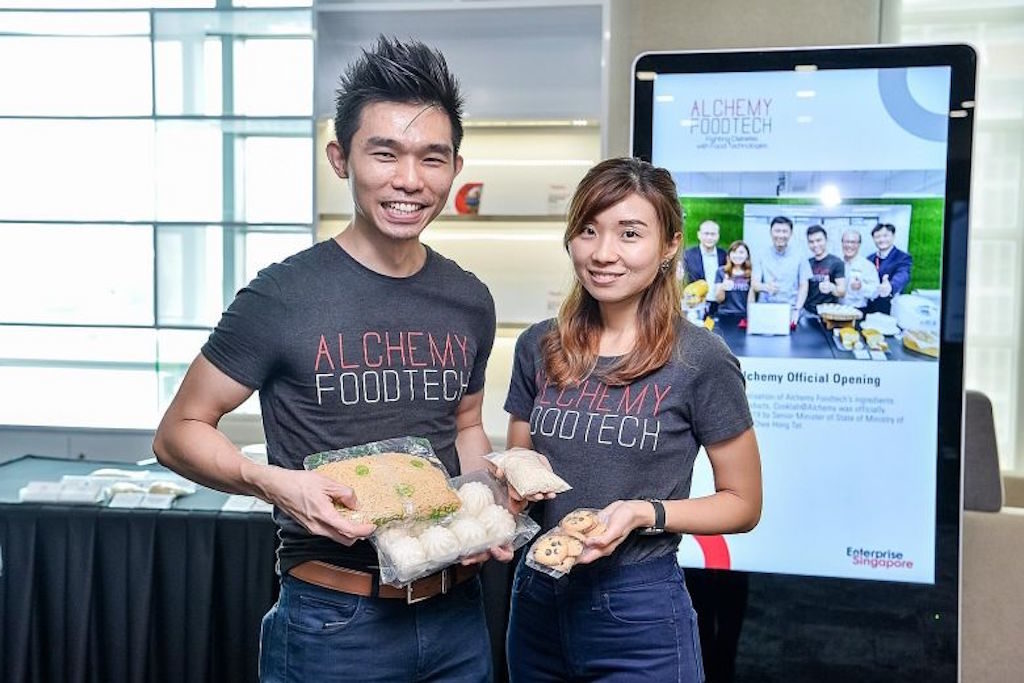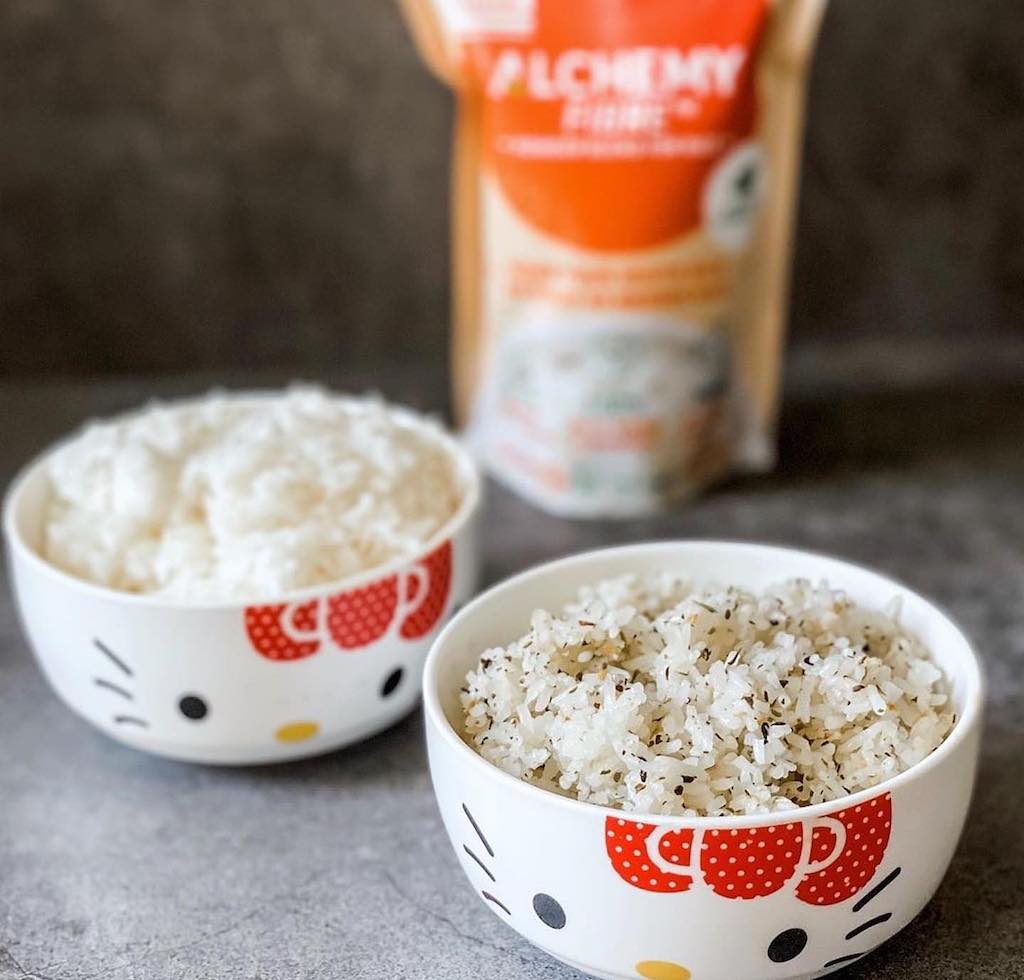Singapore Startup Alchemy Foodtech Targets China For International Expansion Of Its GI-Lowering Powder
3 Mins Read
Alchemy Foodtech recently revealed that it is eyeing China as its next potential market opportunity after launching its first product, Alchemy Fibre, in its home base in Singapore. The product, which comes in powder form, lowers the glycemic index (GI) and increases the fibre content of staple foods such as white rice, representing a game-changing solution to help combat Asia’s rising diabetes and obesity crisis.
Founded in 2019 by Verleen Goh and Alan Phua, Alchemy Foodtech recently launched its first product, Alchemy Fibre, formerly known as 5ibrePlus. The patented vegan-friendly powder blend is made with only plant-based ingredients, such as peas, corn, tapioca, tuber roots, beans and legumes, and helps to lower the GI and up the fibre content of white rice without altering taste or texture. It also contains prebiotics, which helps to promote gut health and immunity.
Green Queen first reported on Alchemy Foodtech after its showcase at the Food’s Future Summit in 2019, and as one of the success stories to emerge from Thailand’s food tech incubator and accelerator SPACE-F.

“Rice was our choice for the first launch as it’s easily the main staple in Singapore as well as many countries in Asia,” said co-founder and chief food fighter Goh, in an interview with FoodNavigator.
“[It] is also the most sensitive to try and change culturally – elderly folk will not react well if you try to ask them to eat less rice, or sometime even to switch to brown rice, and with Alchemy Fibre, there is no need to make any change to diets to get the lower-GI benefit.”
Alchemy Foodtech’s solution is particularly relevant for Asia, a region experiencing rising obesity and diabetes rates. Diabetes, in particular, has become an epidemic in the startup’s home nation, with one in two in Singaporeans expected to have Type 2 diabetes by 2050. With the company’s GI-lowering powder, consumers can continue to enjoy Asian dishes, many of which work best with refined grains like white rice from a taste standpoint, while controlling their blood glucose levels.
[Rice] is also the most sensitive to try and change culturally – elderly folk will not react well if you try to ask them to eat less rice, or sometime even to switch to brown rice, and with Alchemy Fibre, there is no need to make any change to diets to get the lower-GI benefit.
Verleen Goh, Co-Founder of Alchemy Foodtech

In the future, Alchemy Foodtech plans to release a wider range of other GI-lowering products, including solutions for other carbohydrate staples such as noodles and bread.
“We’ll also be launching an all-purpose flour blend soon, as well as a series of pre-mixes with no sugar added for baking, so this will cover things like muffins and brownies. The same concept will apply here which is to lower the glucose release rate,” Goh shared with the publication, adding that the company may partner with existing brands to release products with Alchemy Fibre incorporated into them.
Goh also revealed that Alchemy Foodtech plans to enter international markets, with its main target being China – the largest market in Asia with around a third of the adults in the country estimated to be diabetic – followed by Thailand and Indonesia.
The co-founder went onto explain that the timing of Alchemy Foodtech’s roll-out comes as health reaches top-of-mind amongst mainstream consumers, in light of the coronavirus crisis that has shifted priorities to mindful eating and healthy cooking at home.
“Covid-19 was also one of the reasons we decided to launch the fibre for rice now, as there was also an uptrend in cooking at home and more mindful eating alongside products to strengthen and boost immunity, and Alchemy Fibre ticked all the boxes.”
Lead image courtesy of Alchemy Foodtech / designed by Green Queen Media.




